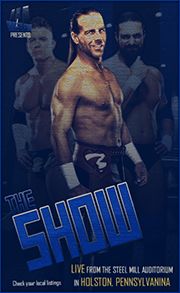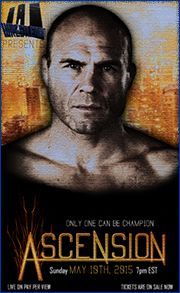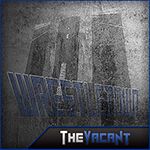Post by Admin: Scott on Dec 8, 2014 21:58:17 GMT -5
Dec 6, 2014 20:55:35 GMT -5 Admin: Scott said:
WRESTLETOWN
A Proud Community in Troubling Times
Professional Wrestling in a Historical Context
The License that Changed it All
Putting it All Together
Welcome to Holston, Pennsylvania. Otherwise known as Wrestletown. It is a small, blue collar community-- one of those communities where life is lived simply, and everyone knows everyone. It is the town where the captain of the wrestling squad married the prom queen and would go on to owning the car dealership in town. Those who grew up in the town of Holston dreamed big; and those dreams usually involved wanted nothing more to escape Holston, move on to the big cities. In reality, however, subject of course to some exceptions, most who were born and raised in Holston would live and die in Holston.
This small, blue collar town, nestled in Eastern Pennsylvania, is not known for much, except for one thing-- it's historical love for it's high school wrestling program. The Holston Huskies have a rich high school wrestling program-- think what football was to Texas in "Friday Night Lights." If you were on the wrestling squad, you were a rock star. Everyone knew who you were-- from the mayor to clergy, from little kids in grammar school to senior citizens, If you lived in Holston you were a Huskies fan. You knew the wrestlers on a first name basis. Matches would sell out seasons in advance. A separate gym was constructed years ago so that those who could not find seating in the main gym could watch via closed circuit television. The fanaticism was so great that every couple years, a major television network would run a public interest story on just how popular high school wrestling program was. It was that big a deal.
In recent years, the recession hit the Township of Holston pretty hard. Unemployment has been up, corruption has increased, and as a result, a limitation of funds have jeopardized many health and educational services available. Holston was in need of something good, something that could infuse cash flow into its economy-- something drastic.
And that something happened. Professional Wrestling came to Holston, Pennsylvania.
One of the tragedies for those who wrestled for the Holston Huskies high school program-- or, for any wrestling program for that matter-- is that historically, there was nowhere to go. For many, it may be a ticket to a college scholarship, where they'd wrestle in college, and then either move out of town, or graduate and get a local job as-- you guessed it-- a wrestling coach. Unlike baseball, football, basketball, hockey, and virtually every other sport, there was no "professional wrestling." It didn't exist-- at least, not as a real sport. Yes, there was that stuff on television that passed itself as "sports entertainment," but that wasn't real. You needed as much an acting background as a wrestling background to break into that industry.
But slowly, things began to change. Shortly after the birth of the mixed martial arts boom two decades ago, coupled with the popularity of shoot wrestling and catch wrestling overseas, professional wrestling-- real professional wrestling as a sanctioned sport-- began to slowly gain traction, initially in Japan, Mexico and Russia. However, it is not something that had every caught on-- or was ever really given serious consideration in the states-- until about ten years ago. The political climate, still not accepting of mixed martial arts as a sport, was reluctant to endorse professional wrestling. However, traces of acceptance began to surface about a decade ago in limited states, such as California and Nevada.
This was actually an escape for some, but not many of those from Holston. You would hear of "so and so" who was able to break out and make it to the "big leagues," and their names would be uttered with pride. But these were very few and far between.
The License that Changed it All
In late 2013, a gentleman by the name of Dean Willard filled out an application for a license that would change everything for Holston Pennsylvania, and mark the birth of Wrestletown. Dean Willard was a self-made millionaire, a household name thanks to his relentless pursuit of entertainment and drama in the field of reality television.
Willard also happened to be a diehard fan of both amateur and pro wrestling, and was the mind behind the 2010 documentary "Wrestletown" that focused on the Holston, Pennsylvania high school wrestling program and the community that supported it. (For the last nine years, Holston has been the number one ranked team in the country, boasting an undefeated record of 162-0, and churning out a record 30 state champions during the same stretch).
He sought to sent up a professional wrestling organization that would call Holston, Pennsylvania its hometown. recognizing that the community's deep roots in the support would bring the people to the arena in droves. His focus was as much on the drama that would unfold outside of the ring as the action that would unfold inside the ring.
Willard also happened to be a diehard fan of both amateur and pro wrestling, and was the mind behind the 2010 documentary "Wrestletown" that focused on the Holston, Pennsylvania high school wrestling program and the community that supported it. (For the last nine years, Holston has been the number one ranked team in the country, boasting an undefeated record of 162-0, and churning out a record 30 state champions during the same stretch).
He sought to sent up a professional wrestling organization that would call Holston, Pennsylvania its hometown. recognizing that the community's deep roots in the support would bring the people to the arena in droves. His focus was as much on the drama that would unfold outside of the ring as the action that would unfold inside the ring.
He planned to broadcast his product on his network in the form of a bi-weekly television show called "The Show," which be filmed at a biweekly live event, and cater to the local community. For the town, this was a miracle, as it would infuse much needed capital into the community. For the high school wrestling diehards who remembered the glory days, this was a dream come true, as they began to salivate at the thought of the best of the best become pro. Old feuds would be rekindled, new feuds would surface.
This new organization would attract a motley crew of wrestlers. While the roster would be rich in local, home grown talent, this did not stop those from different walks of life and different geographical areas to pursue their dreams with one of the only professional wrestling games around. Of course, because this was a risky start up, the budget was limited, so there would be no name brands or superstars; but those with a passion for the sport and no other options saw Wrestletown as a dream come true.











